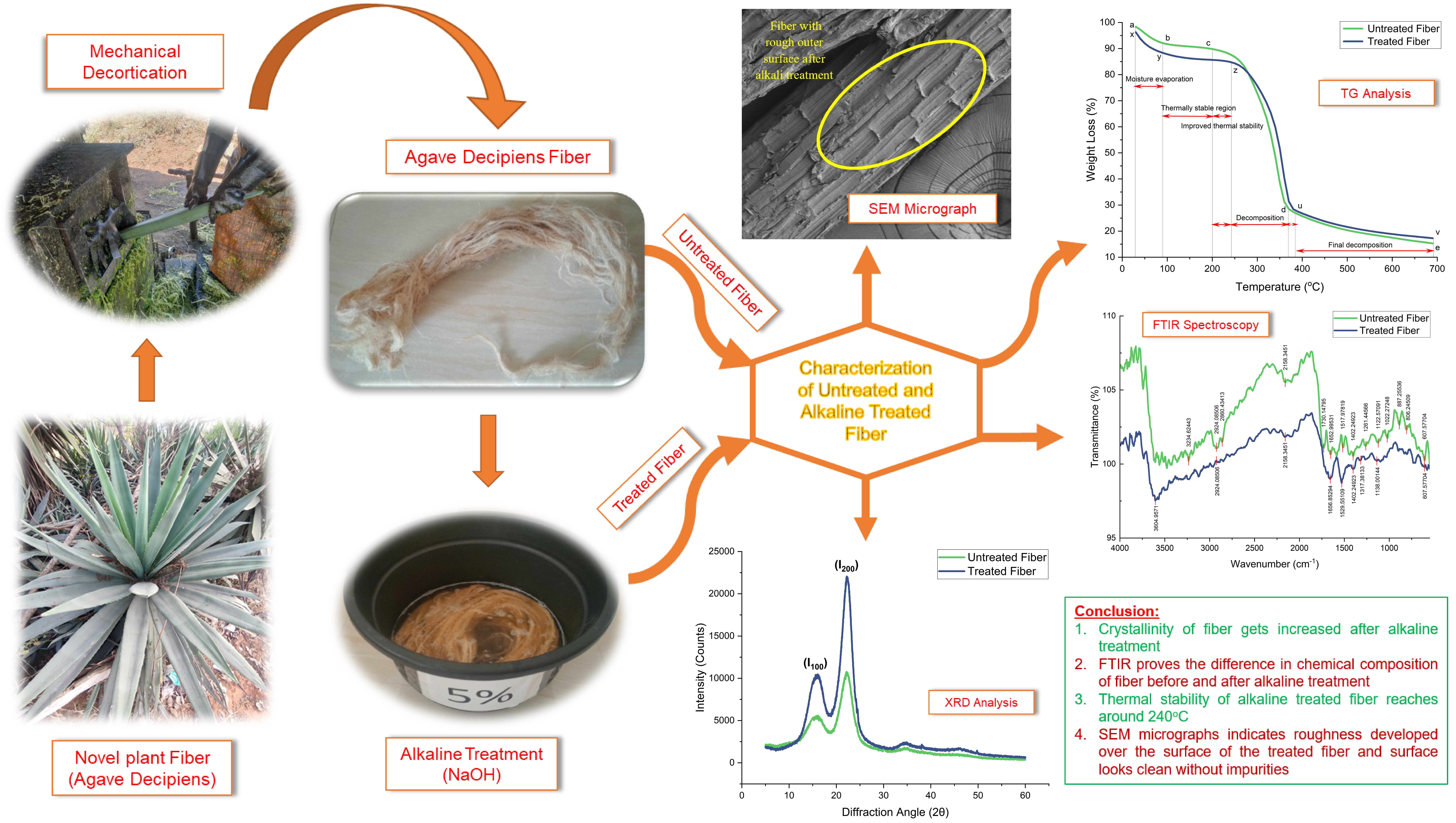
The article involves in the process of study on novel plant fiber from agave plant species known as agave decipiens. The fiber was mechanically extracted from their leaves and fiber was chemically treated using sodium hydroxide by 5% (w/v). Using various analyses, the fiber was characterized and its properties were obtained. From chemical constituent analysis it was confirmed that hemicellulose, amorphous lignin, and other impurities were removed to some extent, and using x-ray diffraction (XRD), an improvement in crystallinity index was observed (i.e. from 47.99% to 52.29%). Increased crystallinity provides better tensile stress from 479.302 MPa to 494.172 MPa, which was confirmed by single fiber tensile test. A change in physical diameter was observed using a digital microscope, the outer diameter was reduced to 117.66µm from 121.84µm. Change in chemical components was identified by Fourier Transform Infrared Spectroscopy (FTIR). Alkaline-treated (AT) fiber sustains a temperature of about 240oC during thermogravimetric analysis (TGA). Study on surface morphology was conducted with help of scanning electron microscope (SEM). Concluding that alkaline treatment made some impact on fiber characteristics and made it suitable for reinforcement.
Total file downloads: 11